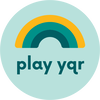The Regina Children's Charter guides the organizations of the Regina and Area Early Childhood Network (RAECN). This was shared work by all RAECN members and we are grateful to Jacq Brasseur of Ivy + Dean Consulting, Jeff Cappo, Elder Hazel Dixon, Alicia Morrow, Renée Wahl, and many children and youth for their perspectives and assistance in the co-creation of the Regina Children's Charter.
| raecn_childrens_charter.pdf |
Children's Charter Text
The first page of the document has text swirling in a circle around a child balancing near a butterfly and bumblebee. The swirling text and lack of punctuation is meant to show that there is no starting point or stopping point in the work of supporting children as a community and that the different ways of supporting children are interconnected. The first page says:
ensuring access to quality housing, clean drinking water, safe public spaces, privacy, and independent mobility; care for children's joy and happiness; listening to children; wâhkotôwin; nurturing children's loving relationships with people, food, language, all beings, and land; access to quality housing, quality care, clean drinking water, nutritious and traditional foods, quality and affirming health and dental care, safe public spaces, independent mobility; ensuring safety, creating a sense of belonging, welcoming children in society.
The second page of the text says:
This Charter guides the commitment of our community to respect and holistically support children emotionally, intellectually, spiritually, and physically.
The right to be safe
in a community committed to freedom, peace, and climate action; where families are protected from racism and exploitation; do not have to hide parts of who they are; and have opportunities to explore, take risks, and play in a stable, secure environment with dignified access to
The right to be themselves
within a community that
The right to loving relationships
within a nurturing community that
The right to lifelong learning
within a community that
The right to play
and live in a community that
The right to contribute
within a community that
The third page says:
The right to be safe
The right to be yourself
The right to loving relationships
The right to lifelong learning
The right to play
The right to contribute
ensuring access to quality housing, clean drinking water, safe public spaces, privacy, and independent mobility; care for children's joy and happiness; listening to children; wâhkotôwin; nurturing children's loving relationships with people, food, language, all beings, and land; access to quality housing, quality care, clean drinking water, nutritious and traditional foods, quality and affirming health and dental care, safe public spaces, independent mobility; ensuring safety, creating a sense of belonging, welcoming children in society.
The second page of the text says:
This Charter guides the commitment of our community to respect and holistically support children emotionally, intellectually, spiritually, and physically.
The right to be safe
in a community committed to freedom, peace, and climate action; where families are protected from racism and exploitation; do not have to hide parts of who they are; and have opportunities to explore, take risks, and play in a stable, secure environment with dignified access to
- quality housing;
- quality care;
- clean drinking water;
- nutritious and traditional foods;
- quality and affirming health and dental care;
- privacy;
- nature; and
- public spaces where children can safely and independently get around
The right to be themselves
within a community that
- responds, embraces, welcomes, and accepts children as integral parts of society;
- supports children to know and be proud of who they are, their culture, language, religious beliefs, bodies, abilities, gender expression, and individual values;
- supports children to be free to express their feelings; and
- ensures children have what they need to feel secure, comfortable, included, useful, and needed
The right to loving relationships
within a nurturing community that
- fosters children’s connections with their family, friends, land, food, self, and the natural world;
- works to ensure children have at least one adult that knows and believes in their hopes and dreams; and
- removes restrictions being placed on love and chosen families
The right to lifelong learning
within a community that
- understands play is important for learning;
- offers early experiences that provide opportunities for children to feel a sense of belonging, mastery, independence, and generosity;
- supports children’s curiosity and natural exploration of the world; sees the land, the environment, and all beings as critical relations to children: wâhkotôwin;
- values teaching children about people like them and experiences like theirs;
- cares about children’s hopes and dreams and helps them achieve their goals; and
- offers a quality education for all children
The right to play
and live in a community that
- values play and offers play opportunities that are accessible and affordable to all;
- understands the interconnection between play, the arts, storytelling, relationships, identity, the environment, culture, and language;
- offers play opportunities without gendered or cultural expectations; and
- cares about children’s joy and actively offers opportunities for children to experience happiness
The right to contribute
within a community that
- listens to children;
- invites children to influence decisions;
- sees, hears, and respects children; and
- consistently treats children and their concerns with dignity
The third page says:
The right to be safe
The right to be yourself
The right to loving relationships
The right to lifelong learning
The right to play
The right to contribute



